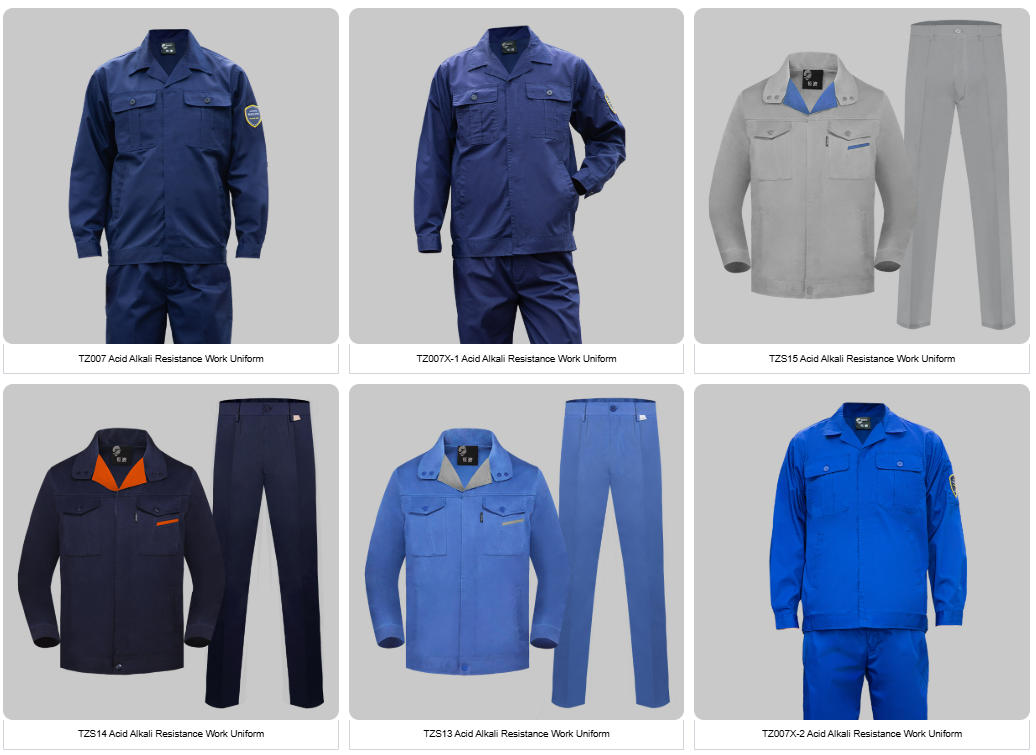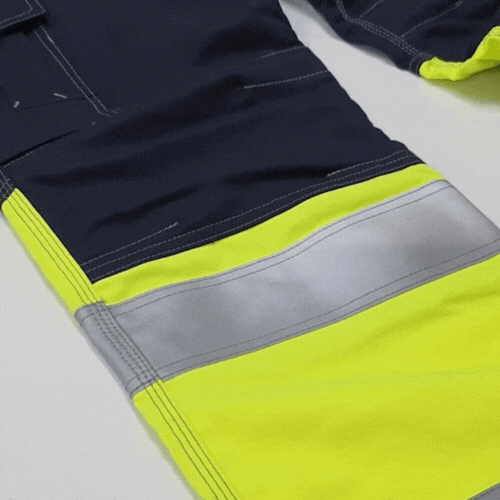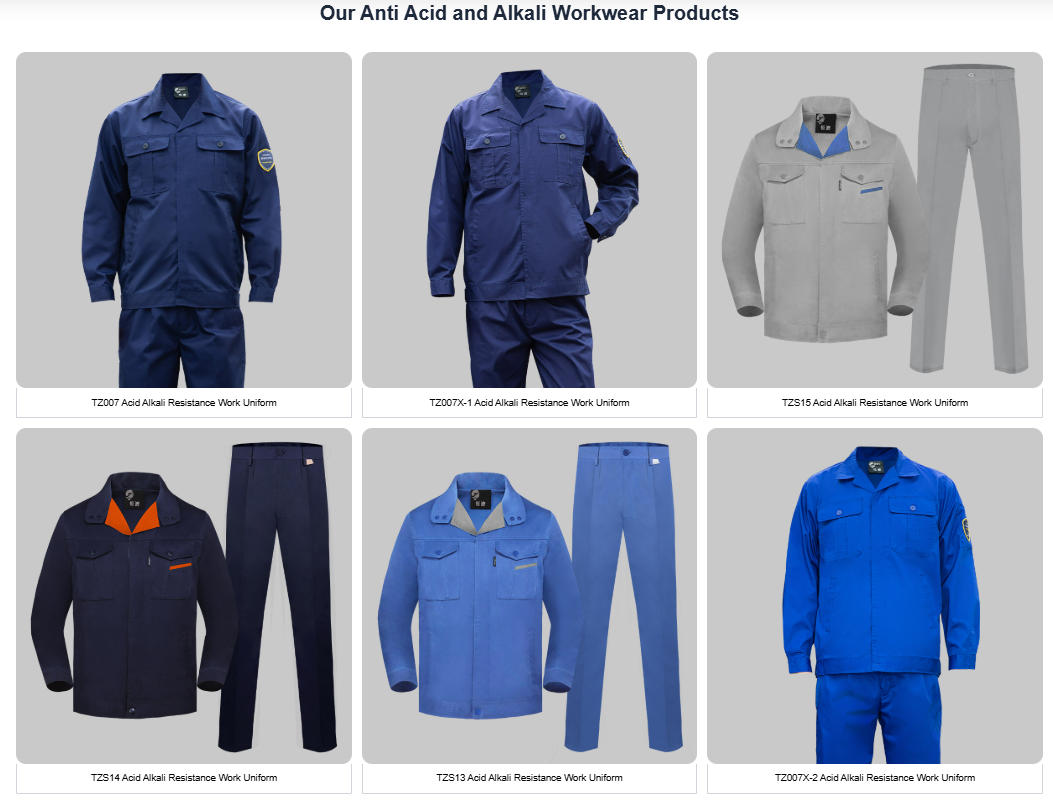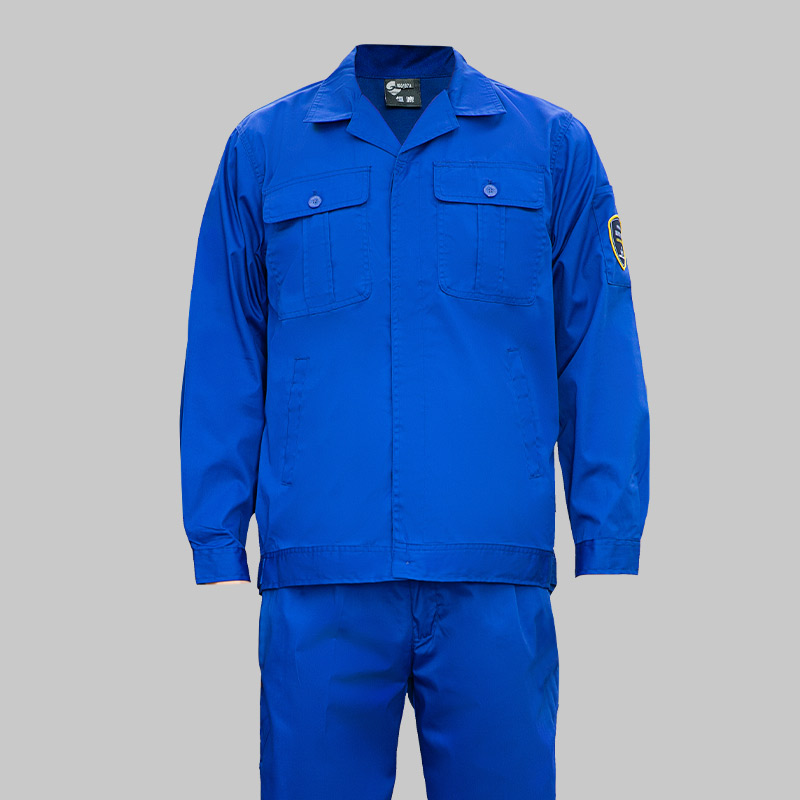For businesses in the Maldives—especially resorts, hotels, marine activity centers, and corporate offices in Malé—professional uniforms are integral to brand identity and guest experience. Sourcing from China offers a wide variety of fabrics suitable for tropical climates, competitive pricing, and the ability to customize even the smallest orders with intricate logos.
Phase 1: Strategic Planning & Product Definition
1. Define Your Needs for the Maldivian Context:
-
Climate-Appropriate Fabrics: This is paramount. Prioritize:
-
Lightweight & Breathable: High-quality cotton, cotton-polyester blends, linen, and technical performance fabrics that are moisture-wicking and quick-drying.
-
Sun Protection: Fabrics with UPF (Ultraviolet Protection Factor) ratings for outdoor staff.
-
Color Fastness: Colors must resist fading from intense sun and frequent washing in hard water.
-
-
Why China? While the Maldives imports most goods, sourcing directly from China can offer:
-
Cost-Effectiveness: Better prices for bulk orders compared to buying from local distributors who have already marked up imported goods.
-
Direct Customization: Full control over design, fit, and logo application.
-
Specialized Items: Access to specific resort wear, tailored chef attire, or technical sailing gear.
-
2. Define Your Product with Precision:
-
Create a Detailed Tech Pack: This is your essential blueprint. Include:
-
Technical sketches with front, back, and side views.
-
Detailed size chart in CM/INCHES. Consider if you need Asian or Western sizing.
-
Exact fabric specification: e.g., “100% Cotton, 180GSM Jersey Pique” or “88% Polyester / 12% Spandex, 220GSM Mesh.”
-
Color Standards: Provide physical fabric swatches or Pantone (PMS) codes for accuracy.
-
Logo Application: Specify embroidery (thread type, stitch density), printing (screen print for durability, DTG for complex designs), or patches. Provide a high-resolution vector file (AI/EPS).
-
-
Samples Are Non-Negotiable: Budget for 2-3 rounds of samples. The pre-production sample is your final reference for quality before mass production.
3. Calculate the Total Landed Cost:
The unit price is just the start. For the Maldives, shipping is a significant component. Calculate:
-
Unit Cost x Quantity
-
Sample Costs
-
International Freight (Air vs. Sea – see Logistics section)
-
Insurance
-
Maldivian Customs Duty & GST (See Section 3)
-
Customs Agent & Freight Forwarder Fees
-
Local delivery within the Maldives (e.g., from the port in Malé to your resort)
-
Bank transfer fees
Phase 2: Finding & Vetting Suppliers in China
1. Sourcing Channels:
-
B2B Platforms: Alibaba.com is the most effective. Filter for suppliers with “Gold Supplier,” “Trade Assurance,” and those verified by third parties. Made-in-China.com is another option.
-
Sourcing Agents: Highly Recommended. An agent based in China can manage the entire process: find factories, negotiate, perform quality control, and handle shipping paperwork. Their fee (5-10%) is often worth the risk reduction and time saved.
-
Trade Shows: The Canton Fair is ideal for building relationships and assessing quality in person.
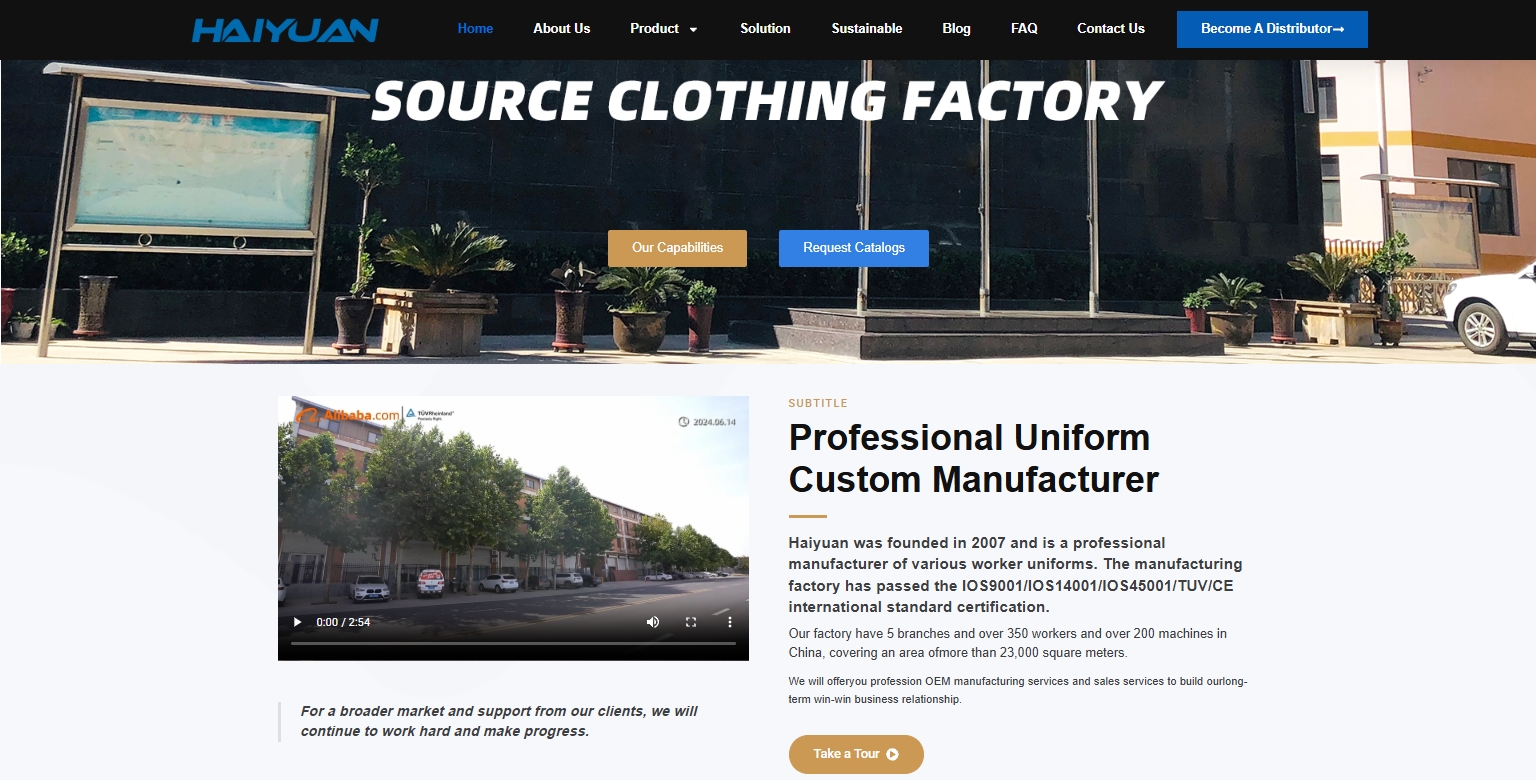
haiyuan work clothes factory
2. Vetting Suppliers:
-
Communication: Gauge their responsiveness and understanding of your needs, especially for tropical fabrics.
-
Factory Audit: Request a virtual tour or videos of their production line.
-
Portfolio: Ask for examples of work they’ve done for other resort or hospitality clients.
-
Get Multiple Quotes: Provide your detailed tech pack to 3-4 suppliers for comparable quotes.
Phase 3: Logistics & Import Regulations for the Maldives
This phase is critical due to the Maldives’ island geography.
1. Shipping and Logistics:
-
Primary Entry Point: All sea freight arrives at the Port of Malé. Air freight arrives at Velana International Airport (MLE).
-
Incoterms:
-
FOB (China Port): You control the main shipping leg. You hire a freight forwarder to handle the journey from China to Malé. This offers more control over cost and carrier choice.
-
CIF (Malé): The supplier arranges and pays for shipping to Malé. This is simpler but you may pay a premium and have less visibility.
-
-
Air Freight vs. Sea Freight:
-
Air Freight: Highly recommended for first orders and smaller quantities. It is much faster (3-7 days) and avoids long delays at the port. The higher cost may be justified for getting your initial stock quickly and reliably.
-
Sea Freight (LCL): For larger orders, Less than Container Load (LCL) is cost-effective. Your goods are consolidated with others in a shared container. However, transit is slower (15-25 days) and port clearance can add time.
-
2. The Critical Role of a Freight Forwarder / Customs Agent:
You must work with a Maldivian customs agent or a freight forwarder with a strong partner in Malé. They will:
-
Handle all customs clearance paperwork.
-
Pay duties and taxes on your behalf.
-
Arrange for pickup from the port/airport and final delivery.
-
Navigate the port procedures, which can be complex for newcomers.
3. Understanding Maldivian Import Regulations:
-
Importer Registration: Your business must be registered with the Maldivian Customs Service. You will need a TIN (Tax Identification Number).
-
Customs Documentation: Your Chinese supplier must provide:
-
Commercial Invoice (must be signed and stamped)
-
Packing List
-
Bill of Lading (Sea) or Air Waybill (Air)
-
Certificate of Origin (Can help determine duty rates)
-
-
Customs Duties & Taxes:
-
Customs Duty: Rates vary by product but are generally applied to the CIF value (Cost, Insurance, Freight). You must check the latest tariff schedule from Maldivian Customs. Many textiles carry a duty.
-
Goods and Services Tax (GST): A 16% GST is applied on the CIF value + Customs Duty.
-
Phase 4: Order Execution & Quality Assurance
1. Payment Terms:
-
Secure Terms are Essential.
-
Standard Practice: 30% deposit via T/T (Telegraphic Transfer) to start production. 70% balance after you approve the pre-shipment inspection report but before shipment.
-
Use Alibaba Trade Assurance: This provides a layer of payment protection.
-
Avoid 100% upfront payments.
2. Quality Control (QC):
-
Pre-Shipment Inspection (PSI): Do not skip this. Given the distance and difficulty of returning goods, an inspection is your best insurance. A third-party inspector will check for:
-
Correct materials, colors, and sizing.
-
High-quality stitching and construction.
-
Accurate and high-quality logo application.
-
Quantity and packaging.
-
-
The cost of a PSI is negligible compared to the cost of receiving unusable uniforms in Malé.
Key Advantages & Challenges for Maldivian Importers
| Advantages | Challenges & Mitigation Strategies |
|---|---|
| Direct Control: Full control over design, quality, and branding. | High Shipping Costs: Mitigate by comparing air vs. sea (LCL) and getting multiple freight quotes. |
| Cost Savings: Lower per-unit costs on bulk orders, even with shipping. | Complex Logistics: Partner with an experienced freight forwarder based in or with a strong partner in Malé. |
| Wide Selection: Access to a vast range of climate-specific fabrics. | Customs Clearance: Hire a reliable Maldivian customs agent to handle the process. |
| Scalability: Factories can handle orders of any size. | Lead Time: Production + shipping can take 30-60 days. Plan far in advance, especially for resort season openings. |
| Quality Risk: Mitigate with a detailed tech pack, samples, and a mandatory pre-shipment inspection. |
Conclusion: A Viable Strategy for Brand Excellence
For Maldivian companies, especially in the hospitality sector, importing custom uniforms directly from China is a powerful strategy to enhance brand image and operational efficiency.
The recipe for success is:
-
Precise Planning: Define your tropical fabric needs and create a detailed tech pack.
-
Expert Partners: Engage a sourcing agent in China and a freight forwarder/customs agent in the Maldives.
-
Risk Management: Use secure payment terms and never, ever skip the quality inspection.
-
Logistics Wisdom: For most orders, consider air freight for its speed and reliability, despite the higher cost.
By following this guide, you can reliably outfit your team with high-quality, custom-branded uniforms that withstand the Maldivian climate and elevate your guest experience.
Useful links:

